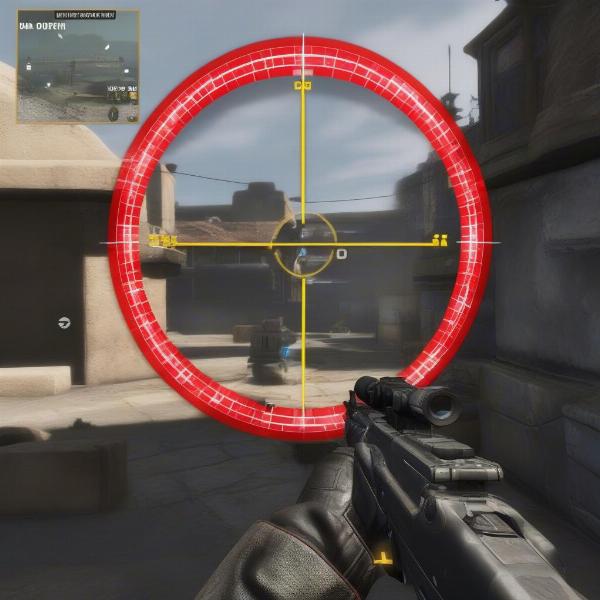The debate rages on in the gaming community: can an Xbox controller, especially when used with Xbox Game Pass titles like Call of Duty, truly replicate the precision of a mouse and keyboard? At SupremeDuelist.blog, we delve into the nitty-gritty of game mechanics, and this is a topic that demands careful analysis. We aim to dissect the claims, explore the technical nuances, and ultimately provide a clear picture for gamers trying to optimize their experience.
Many players, especially those accustomed to PC gaming, often find the transition to controllers on console or with cloud services like Xbox Game Pass jarring. The inherent differences in input methods lead to debates about aiming accuracy, reaction times, and overall competitive advantage. This article will explore whether a controller, particularly within the context of Call of Duty on Xbox Game Pass, can bridge this gap, offering a mouse-like experience, and what that implies for gaming fairness and player enjoyment.
The Fundamental Differences: Controller vs. Mouse
Let’s start with the basics. A mouse translates hand movement directly into on-screen cursor movement. This provides a 1:1 relationship, allowing for incredibly precise aiming and quick flicks. Conversely, a controller uses analog sticks, which interpret movement through degrees of tilt. This requires converting an analog input into digital movement, making aiming less direct. The difference in these systems is noticeable, especially in first-person shooters like Call of Duty. This can lead to frustration for those used to the pinpoint accuracy offered by a mouse. This also extends to games beyond just shooters, though the impact is most noticed in that genre. To better understand what games support alternative input devices, you can refer to xbox series x mouse and keyboard games list.
Why the “Controller is a Mouse” Argument Exists
The crux of the argument lies in several points. Firstly, modern controllers have become quite sophisticated. Features like adjustable sensitivity settings, aim assist, and response curves are designed to make controllers more competitive in titles dominated by mouse and keyboard players. The aim assist, in particular, is a contentious point. It helps players “lock on” to targets, reducing the need for pinpoint precision in aiming. This can create the illusion of “mouse-like” accuracy but in reality its an artificial boost. Some controller users also get used to how it handles and become adept with its limitations.
 controller aim assist benefits
controller aim assist benefits
Secondly, the developers of Call of Duty, and many other shooters, actively work to balance the playing field. Input-based matchmaking and careful tweaks to in-game mechanics help to mitigate the natural disadvantage of controller users against mouse and keyboard players. This balancing act can lead some to feel that the controller, through a combination of these factors, almost acts like a “mouse” in certain situations. While these systems try to create parity, the fundamental difference in inputs still exists.
The Limitations of a Controller, Even with Aim Assist
Even with these advancements, the controller’s input is fundamentally different from a mouse. A mouse is inherently more precise, allowing for rapid, small adjustments in aim that a controller, with its analog sticks and reliance on aim assist, simply cannot replicate. While aim assist reduces the skill needed to initially acquire targets, it limits the fine-tuning abilities of the players. This limitation is crucial, especially in long-range gunfights or in scenarios with multiple targets.
Furthermore, the controller’s analog sticks are limited by their physical range of motion. A mouse can move across a larger surface area, translating to wider movements with higher accuracy on screen. This is why professional gamers in many FPS titles prefer a mouse: the potential for precise, quick adjustments and flicks is much higher. Ultimately, while controllers have improved significantly, they still rely on assistive technology to keep them competitive, which is not the same as pure, direct input control like a mouse.
Call of Duty on Xbox Game Pass: The Specific Context
When considering Call of Duty within the Xbox Game Pass ecosystem, the controller versus mouse debate becomes even more relevant. Xbox Game Pass often enables players who typically use a PC with a mouse and keyboard to play on Xbox or via cloud, using a controller. This context creates a potential mismatch of player skill and input preference. This is similar to the difficulties experienced in cross platform games xbox pc, where input devices and game version may vary.
Does Game Pass Affect the Input Debate?
The primary impact of Game Pass is to expand the audience. This increases the mix of controller and mouse players online. Therefore it highlights the differences between the two input methods. While the game mechanics themselves remain the same, the diverse pool of players magnifies any perceived advantage that comes with using either input device. However, if playing on a cloud service via a PC, one may be able to use the mouse and keyboard directly with their game subscription. In fact, the debate is likely more relevant in the console setting where cross-input devices are not natively supported for every game.
Is “Mouse-Like” Controller Play Achievable?
The short answer is: not truly. While controllers are more advanced and can be competitive with aim assist, they are not on the same level as a mouse. Skilled controller players can definitely achieve very impressive results. However, the fundamentals of their input remain different, and therefore controllers will never provide a 1:1 mouse-like accuracy. The argument for the controller being “like a mouse” really boils down to how effective the assist mechanics are.
 xbox controller precision aiming
xbox controller precision aiming
The Role of Input-Based Matchmaking
Many modern games, including Call of Duty, use input-based matchmaking. This is a system that aims to pair players with similar control schemes against each other. While this is not always perfect, it can create more balanced matches. If the system works well, most controller users will be playing against other controller users. This reduces the frustration of being constantly pitted against players with the precision of a mouse and keyboard.
Expert Insights: Balancing Input Dynamics
We reached out to seasoned competitive FPS player, Marcus “Vanguard” Reyes, for their perspective on the controller vs. mouse debate. According to Vanguard:
“Controllers have come a long way, and the aim assist definitely closes the gap. But at the highest levels of competitive play, a mouse provides precision that a controller just can’t match. It’s really about the ceiling of skill potential and the control over very subtle movements.”
This insight reflects what most players experience: the controller is viable, but the potential of a mouse is far higher.
The Verdict: Controller is Not a Mouse
Ultimately, while advancements in controller technology and aim assist mechanics have made them more competitive, it’s inaccurate to claim that a controller is truly “like a mouse.” While they both allow players to interact with the game, the input mechanisms are fundamentally different. A mouse provides direct, 1:1 movement, while a controller relies on an analog system and assistive features. The aim is to make the two input devices viable, but not identical. The difference in input will also be highly dependent on game design.
The Key Takeaways
- Controllers are not a 1:1 replacement for mouse input.
- Aim assist helps but does not fully bridge the gap.
- Input-based matchmaking can lead to more balanced matches.
- Game Pass does not change the underlying controller vs. mouse debate.
- The best input device is still a matter of preference and game experience.
It’s not about one input being “better” than the other, but understanding the differences and how they impact game play. This nuanced approach allows players to choose the input that best suits their style and play the games that they love in a way that works for them. This level of understanding also empowers players to make the best choices possible about their setup.
Your Choice, Your Game
While the debate will likely continue, one fact remains: gaming should be enjoyable. Whether you prefer a controller or a mouse and keyboard, focusing on mastering your chosen input will always be more beneficial than arguing about which is “better.” SupremeDuelist.blog will continue to explore these nuances in the gaming world, providing clear analysis so that our readers can get the most out of their gaming experience.
Leave a Reply